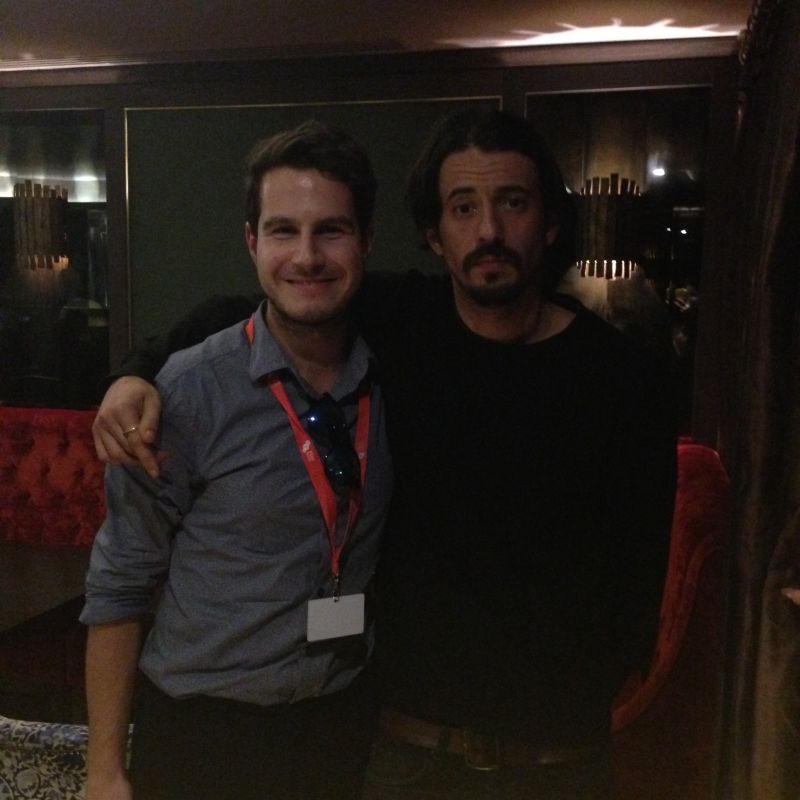|
|
||
|
Pro Tools
FILMFESTIVALS | 24/7 world wide coverageWelcome ! Enjoy the best of both worlds: Film & Festival News, exploring the best of the film festivals community. Launched in 1995, relentlessly connecting films to festivals, documenting and promoting festivals worldwide. Working on an upgrade soon. For collaboration, editorial contributions, or publicity, please send us an email here. User login |
Bilal: Animation Feature from the UAE at Cannes 2016 (Review)
A seemingly conventional story for the eternal battle between good and bad transforms an ancient myth into an epic animation that can move both younger and older audiences.
Bilal is the story of a young slave who becomes the symbol of equality and freedom for his people, by turning against the tyrannic ruling of the wealthy and powerful and adopting a new faith. Originally inspired by one of the most widely known myths in Islam culture, this animation feature makes an attempt to explore deeper values and understandings of human nature that have remained untouched by time.
After his mother’s death at a very young age, Bilal remained the family milestone and sole guard to his sister. Born slaves, they always obeyed to the rules of the king and served the unlawful regime he imposed on a nation of slaves. The only people that saw freedom were priests, respected carriers of the faith in multiple idols, all responding to the king’s will.
When one day Bilal saves his sister from the attack of the young prince, the king’s son, a long-lasting hatred for the tyranny is born in the young boy’s heart, reminding him of his mother’s words that he is a warrior and one day he will find the answers he always looked for. Always accompanied by his best friend, a rapid white horse, Bilal grows up to become a courageous and kind-hearted man, which doesn’t go unnoticed by an old wise villager who observed the boy and his actions, until he finally approached him speaking proudly about his kind soul and the ability to save his fellows and give them freedom and a better life.
On a parallel level, the original myth speak of Bilal being among the first to adopt the new religion, Islam, being introduced to the single god by Mohammed himself, who became his teacher and remained close to him until his death. Mohammed had seen in Bilal great power and the ability to spread god’s words, as according to the story, he spoke in a way so enchanting that attracted even the most reluctant.
Visually quite par, the film keeps a fast pace, without excluding significant parts of Bilal’s ascend as a hero, standing for his people’s equal recognition, setting the milestone for a new era in the Arabic world of his time. Attention has been paid to every detail concerning the recreation of characters that have since appeared in most school books, contributing toward the education of numerous generations on the values of human rights and racial equality.
The english dubbing is understandable given the broad character of the story presented and the fact that reflections can be found in almost all cultures around the world. At times the transitions resemble the screen of a video game, which is not always easy to avoid in the world of digital animation, specially in an indie animation title. But it’s mainly the coherence of the story and the underlying humanitarian issues about family, equality and rights it deals with that could definitely open its road to a wider audiences.
By Martin I. Petrov / @ Cannes 2016 12.05.2016 | Martin I. Petrov's blog Cat. : 2016 animation Animation bilal cannes festival festival de Cannes film film festival marché review
|
LinksThe Bulletin Board > The Bulletin Board Blog Following News Interview with EFM (Berlin) Director
Interview with IFTA Chairman (AFM)
Interview with Cannes Marche du Film Director
Filmfestivals.com dailies live coverage from > Live from India
Useful links for the indies: > Big files transfer
+ SUBSCRIBE to the weekly Newsletter Deals+ Special offers and discounts from filmfestivals.com Selected fun offers
> Bonus Casino
User imagesAbout Martin I. PetrovThe EditorUser contributions |
























 Petrov Martin
Petrov Martin 


